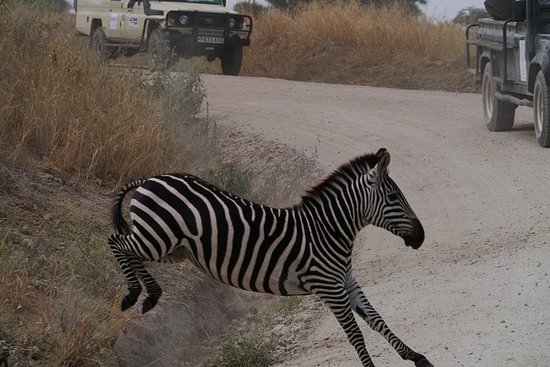Tanzanian Tour operators have implored the government to invent an online platform for all taxes to be done electronically with an eye to root out bureaucracy and ease compliance.
Tanzania Association of Tour Operators (TATO) says that its members would like to pay all taxes in a single online platform to allow them ample time to search for business opportunities.
Representing over 300 tour operators, TATO is a leading lobby agency for a tourism industry that earns the country’s economy about $2.05 billion per annul, equivalent to 17 percent of the country’s GDP.
Highlighting key challenges facing the industry before the visiting deputy minister for Finance, Dr. Ashatu Kijaji, TATO Chairman, Mr Willbard Chambulo said multiple taxes compliance consumes a lot of time and money and could encourage tax evasion.
Available records indicate that tour operators are subjected to 37 different taxes, comprising business registration, regulatory licenses fees, entry fees, income taxes and duties for each tourist vehicle per annul, among others.
The TATO chairman argued that the contentious issue is not only how to pay myriad taxes and make profits, but also the modality and time spent in complying with intricate taxes.
“Tour operators need streamlining of taxes to ease compliance because the cost of compliance is so high and as such it acts as obstacle for voluntary compliance” Mr Chambulo explained.
Indeed, a study on Tanzanian tourism sector indicates that the administrative burdens of completing license tax and levy paperwork place a heavy cost on businesses in terms of time and money.
For instance, tour operator spends over four months to complete regulatory paperwork, whereas in tax and license paperwork consume his or her a total of 745 hours per year.
The report done by Tanzania Confederation of Tourism (TCT) and BEST- Dialogue, shows that average annual cost of personnel to complete regulatory paperwork per local tour operator is Tsh 2.9 million ($1,300) per year.
Tanzania is estimated a home to over 1,000 tour companies, but official data shows that there are as few as 330 formal firms complying with tax regime, which is likely to be due to the complexities of compliance.
This means that there could be 670 briefcase tour firms operating in Tanzania. Going by the annual license fee of $2000, it means that treasury loses $1.34 million annually.
TATO CEO, Mr Sirili Akko said: ‘No doubt that our members are compliant that is why they have audacity to request for a system which will relieve them of ‘long man hours’ in corridors of regulatory bodies. I am confident that our government will simplify payments systems for all government revenues including taxes as requested by private sector officials”
However, TATO hopes that the new system of issuing Tanzania Tourism Business License (TTBL) introduced by Natural Resources and Tourism Minister, Dr Hamis Kigwangala, would effectively bring informal tour operators into the tax net.
Late last year, Dr Kigwangala took a bold step in scrapping off the old $2,000 flat rate fee for TTBL for all local tour operators without considering the size and business of the company.
The Minister introduced a new category where TTBL fee for tour operators with between one and three tourist cars would be $500 in his efforts to spur the majority small scale tour operators to formalize their businesses and boost the tax base.
In her response, Dr Kijaji agreed with TATO’s chairman arguments, vowing that the government would work on system where businessmen would be paying all taxes under one roof to offer them a hassle free taxes compliance.




